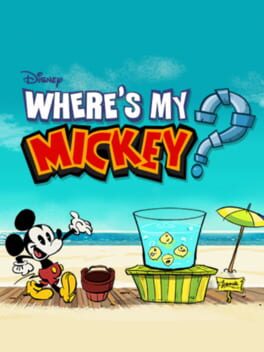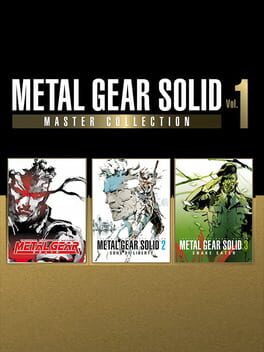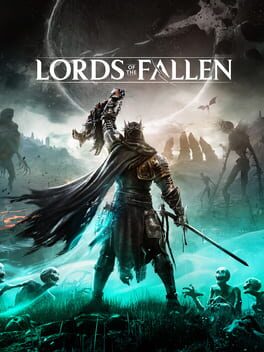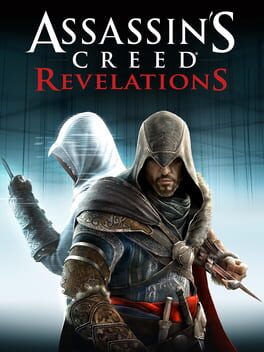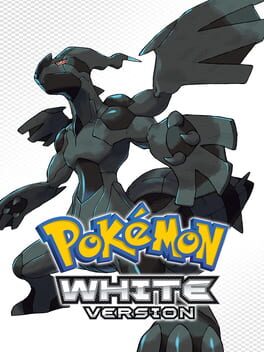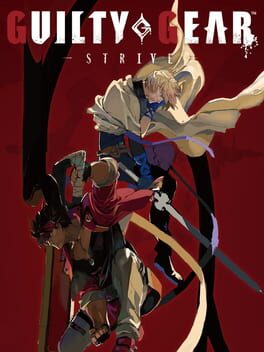BOZE
134 Reviews liked by BOZE
Where's My Mickey?
2013
Signalis
2022
Eletto come miglior indie horror del 2022, Signalis è una lettera d'amore ai survival horror di fine anni 90, in primis Resident Evil e Silent Hill, a cui unisce una narrazione non convenzionale tipica di alcuni autori cinematografici come Hideki Anno, David Lynch e Stanley Kubrick al fine di ottenere un prodotto che guarda al passato senza dimenticare il presente.
La prima cosa che si nota iniziando una nuova partita è lo stile grafico del titolo: con i suoi, apparenti, pochi poligoni e una sfocatura misurata dell'immagine, la prima impressione è quella di trovarsi davanti ad un gioco sviluppato per PS1, salvo poi constatare (con sollievo) della fluidità moderna del titolo, tra framerate alto, movimento libero e caricamenti istantanei. In caso, tuttavia, si volesse vivere un'esperienza il più possibile retrò, il ricco menù di opzioni ci permetterà di modificare la visuale e il layout dello schermo a nostro piacimento, oltre che cambiare la tipologia di movimento (da libero a tank) e la difficoltà.
Coerentemente a quanto detto finora, Signalis possiede principalmente due anime: quella più esplorativa, narrativa, atmosferica e legata agli enigmi si rifà a Silent Hill, mentre quella action, di gestione dell'inventario e il sistema di salute rispecchia Resident Evil.
Nel primo caso non ci sono problemi, tutto anzi si sviluppa in maniera perfetta: la splendida atmosfera horror che si viene a creare, senza ricorrere ai pigri espedienti jumpscare, aiuta il giocatore ad immergersi sempre più profondamente in una storia dalle sfumature sci-fi che analizza temi complessi sulla natura umana e sulla sua psiche, che parla di amicizia e amore, sottolineando l'importanza dei ricordi sia di coppia che individuali, senza tralasciare una critica socio-politica ad una società che, nascosta dietro una maschera ordinata e idilliaca, si rivela un incubo da cui doversi risvegliare il prima possibile e ad ogni costo. La narrazione per nulla lineare e adita ad intriganti interpretazioni, sebbene con qualche indizio che la indirizza verso una certa strada, rende l'esperienza più personale e, di conseguenza, un qualcosa a cui il giocatore non può far altro che affezionarsi e imprimere nella propria memoria a lungo. Menzione d'onore infine agli enigmi: belli, stimolanti, che richiedono un gran livello di intuizione, di osservazione e la capacità di interfacciarsi con ogni tipologia di strumento a propria disposizione; un punto di riferimento per il genere.
Per quanto riguarda "l'anima Resident Evil", invece, non tutto è rose e fiori. Il gunplay di Signalis è appena accennato, la mira è automatica e i nemici subiscono lo stesso danno ovunque, con l'unica differenza che la protagonista, a seconda del tempo e la posizione da cui mira, può infliggere danno aumentato o missare il colpo. Per quanto ciò risulti diverso dalle opere a cui si ispira, è ben poca roba, in quanto le potenzialità per creare un sistema action più moderno e con una componente ludica maggiormente apprezzabile erano grandissime. Data la scarsità di munizioni e la minaccia che, pur usandole, i nemici sarebbero potuti tornare in vita, il gioco spinge ad usare un approccio più conservativo e sfuggente, relegando le sparatorie unicamente a momenti di urgente necessità; questo si configura in una deludente assenza di bossfight, eccezione fatta per uno scontro obbligatorio contro un mostro comune, una sfida di resistenza a tempo (stile Pyramid Head) e la bossfight finale, lunga e complessa, ma tutto sommato piacevole. Si poteva fare molto di più.
La gestione dell'inventario è stata molto discussa; durante l'intero gameplay avremo a disposizione solo 6 slot in cui poter trasportare oggetti tra cure, armi, strumenti e oggetti chiave. Sebbene all'inizio non sia un problema, col passare il tempo queste "sei tasche" diventeranno sempre più soffocanti e ci costringeranno a fare diversi backtracking (mai troppo lunghi) per prelevare e depositare oggetti nella "safe room". Ciò non è necessariamente un problema, perché introduce una piccola - e personalmente apprezzabile - meccanica di gestione delle risorse, ma con l'aggiunta di oggetti particolari che, premiando una particolarmente pericolosa esplorazione, espandessero l'inventario, si sarebbe risolto il problema per tutti senza snaturare il gameplay. Bastava poco.
Il problema principale, anche piuttosto grave, è un altro: la responsività dei comandi in certe situazioni. Generalmente non ho trovato problemi in tal senso, ma capita che per interagire con certi oggetti o aprire porte, il nostro personaggio deve mettersi in una precisa posizione, nè troppo vicina nè troppo lontana, altrimenti l'interazione non andrà a buon fine; se, malauguratamente, dovessimo trovarci in una situazione delicata in battaglia e avessimo parecchia fretta, rischieremmo di perdere tempo nel trovare la giusta posizione e subire quindi danno gratuito, che a volte si traduce in un game over. Certi dettagli sono poco rifiniti.
Un piccolo paragrafo lo voglio dedicare al character design, nello specifico allo "stile anime" dei personaggi. Ammetto di non apprezzare, di mio, particolarmente questo stile, che si manifesta principalmente nelle sequenze filmiche, ma in questo caso mi sembra che stridesse parecchio con il mood generale dell'opera e, inoltre, non mi sembra granché nemmeno a livello tecnico/artistico.
Fortunatamente la storia è talmente convincente da oltrepassare questo piccolo ostacolo, nonostante ciò fornisca un tocco di originalità al tutto. Io avrei lasciato ogni cosa in stile poligonale, ma comprendo le altre scelte.
Buon comparto sonoro, le ost contribuiscono a creare quell'atmosfera opprimente che viene richiesta ad un buon horror che si rispetti oltre che momenti emozionanti nei punti clou dell'avventura.
Assente il doppiaggio però, grande mancanza che avrebbe potuto migliorare esponenzialmente l'esperienza. Peccato davvero.
Molti elogi, ma anche molte critiche per Signalis, eppure il voto ricevuto è oltre la media. Come mai?
Semplice, perché ogni punto di questa recensione va relazionato al fatto che a sviluppare questo gioco siano state SOLAMENTE due persone, con qualche aiuto esterno per la colonna sonora. Considerata l'elevata quantità di livelli e situazioni differenti che offre Signalis, si stenta a credere che solamente due persone siano riuscite a gestire complessivamente tutto con abile maestria, al netto di un, forse, eccessivo attaccamento al passato, con citazioni a volte al limite del plagio.
Quindi veramente complimenti!
Ovviamente il gioco lo consiglio a tutti, amanti e non del genere, perché una volta iniziato, non si può far a meno di venire rapiti dalle atmosfere misteriose di questa piccola perla horror.
La prima cosa che si nota iniziando una nuova partita è lo stile grafico del titolo: con i suoi, apparenti, pochi poligoni e una sfocatura misurata dell'immagine, la prima impressione è quella di trovarsi davanti ad un gioco sviluppato per PS1, salvo poi constatare (con sollievo) della fluidità moderna del titolo, tra framerate alto, movimento libero e caricamenti istantanei. In caso, tuttavia, si volesse vivere un'esperienza il più possibile retrò, il ricco menù di opzioni ci permetterà di modificare la visuale e il layout dello schermo a nostro piacimento, oltre che cambiare la tipologia di movimento (da libero a tank) e la difficoltà.
Coerentemente a quanto detto finora, Signalis possiede principalmente due anime: quella più esplorativa, narrativa, atmosferica e legata agli enigmi si rifà a Silent Hill, mentre quella action, di gestione dell'inventario e il sistema di salute rispecchia Resident Evil.
Nel primo caso non ci sono problemi, tutto anzi si sviluppa in maniera perfetta: la splendida atmosfera horror che si viene a creare, senza ricorrere ai pigri espedienti jumpscare, aiuta il giocatore ad immergersi sempre più profondamente in una storia dalle sfumature sci-fi che analizza temi complessi sulla natura umana e sulla sua psiche, che parla di amicizia e amore, sottolineando l'importanza dei ricordi sia di coppia che individuali, senza tralasciare una critica socio-politica ad una società che, nascosta dietro una maschera ordinata e idilliaca, si rivela un incubo da cui doversi risvegliare il prima possibile e ad ogni costo. La narrazione per nulla lineare e adita ad intriganti interpretazioni, sebbene con qualche indizio che la indirizza verso una certa strada, rende l'esperienza più personale e, di conseguenza, un qualcosa a cui il giocatore non può far altro che affezionarsi e imprimere nella propria memoria a lungo. Menzione d'onore infine agli enigmi: belli, stimolanti, che richiedono un gran livello di intuizione, di osservazione e la capacità di interfacciarsi con ogni tipologia di strumento a propria disposizione; un punto di riferimento per il genere.
Per quanto riguarda "l'anima Resident Evil", invece, non tutto è rose e fiori. Il gunplay di Signalis è appena accennato, la mira è automatica e i nemici subiscono lo stesso danno ovunque, con l'unica differenza che la protagonista, a seconda del tempo e la posizione da cui mira, può infliggere danno aumentato o missare il colpo. Per quanto ciò risulti diverso dalle opere a cui si ispira, è ben poca roba, in quanto le potenzialità per creare un sistema action più moderno e con una componente ludica maggiormente apprezzabile erano grandissime. Data la scarsità di munizioni e la minaccia che, pur usandole, i nemici sarebbero potuti tornare in vita, il gioco spinge ad usare un approccio più conservativo e sfuggente, relegando le sparatorie unicamente a momenti di urgente necessità; questo si configura in una deludente assenza di bossfight, eccezione fatta per uno scontro obbligatorio contro un mostro comune, una sfida di resistenza a tempo (stile Pyramid Head) e la bossfight finale, lunga e complessa, ma tutto sommato piacevole. Si poteva fare molto di più.
La gestione dell'inventario è stata molto discussa; durante l'intero gameplay avremo a disposizione solo 6 slot in cui poter trasportare oggetti tra cure, armi, strumenti e oggetti chiave. Sebbene all'inizio non sia un problema, col passare il tempo queste "sei tasche" diventeranno sempre più soffocanti e ci costringeranno a fare diversi backtracking (mai troppo lunghi) per prelevare e depositare oggetti nella "safe room". Ciò non è necessariamente un problema, perché introduce una piccola - e personalmente apprezzabile - meccanica di gestione delle risorse, ma con l'aggiunta di oggetti particolari che, premiando una particolarmente pericolosa esplorazione, espandessero l'inventario, si sarebbe risolto il problema per tutti senza snaturare il gameplay. Bastava poco.
Il problema principale, anche piuttosto grave, è un altro: la responsività dei comandi in certe situazioni. Generalmente non ho trovato problemi in tal senso, ma capita che per interagire con certi oggetti o aprire porte, il nostro personaggio deve mettersi in una precisa posizione, nè troppo vicina nè troppo lontana, altrimenti l'interazione non andrà a buon fine; se, malauguratamente, dovessimo trovarci in una situazione delicata in battaglia e avessimo parecchia fretta, rischieremmo di perdere tempo nel trovare la giusta posizione e subire quindi danno gratuito, che a volte si traduce in un game over. Certi dettagli sono poco rifiniti.
Un piccolo paragrafo lo voglio dedicare al character design, nello specifico allo "stile anime" dei personaggi. Ammetto di non apprezzare, di mio, particolarmente questo stile, che si manifesta principalmente nelle sequenze filmiche, ma in questo caso mi sembra che stridesse parecchio con il mood generale dell'opera e, inoltre, non mi sembra granché nemmeno a livello tecnico/artistico.
Fortunatamente la storia è talmente convincente da oltrepassare questo piccolo ostacolo, nonostante ciò fornisca un tocco di originalità al tutto. Io avrei lasciato ogni cosa in stile poligonale, ma comprendo le altre scelte.
Buon comparto sonoro, le ost contribuiscono a creare quell'atmosfera opprimente che viene richiesta ad un buon horror che si rispetti oltre che momenti emozionanti nei punti clou dell'avventura.
Assente il doppiaggio però, grande mancanza che avrebbe potuto migliorare esponenzialmente l'esperienza. Peccato davvero.
Molti elogi, ma anche molte critiche per Signalis, eppure il voto ricevuto è oltre la media. Come mai?
Semplice, perché ogni punto di questa recensione va relazionato al fatto che a sviluppare questo gioco siano state SOLAMENTE due persone, con qualche aiuto esterno per la colonna sonora. Considerata l'elevata quantità di livelli e situazioni differenti che offre Signalis, si stenta a credere che solamente due persone siano riuscite a gestire complessivamente tutto con abile maestria, al netto di un, forse, eccessivo attaccamento al passato, con citazioni a volte al limite del plagio.
Quindi veramente complimenti!
Ovviamente il gioco lo consiglio a tutti, amanti e non del genere, perché una volta iniziato, non si può far a meno di venire rapiti dalle atmosfere misteriose di questa piccola perla horror.
Sonic Superstars
2023
Going from Mania to this is genuinely disheartening. Feels very cheap. Not worth $60 at all. Some bosses are very frustrating. I think only about 3 of the 11 zones were actually enjoyable and that is the problem. The best zone in the game is only one act (why??). I think all the main characters look and are animated great, I can't say the same for the rest of the game. Being a Sonic fan is painful and games like this are part of the reason why. Sonic Team needs to genuinely look into reinventing what 2D sonic entirely or hand it off to people who actually know how to design sonic levels. A sonic game more akin to a Donkey Kong Country may actually be good with a more "set-piece" oriented stage style.
Sonic Superstars
2023
Lords of the Fallen
2023
Signalis
2022
Playing this and Valhalla back to back gave me whiplash sufficient to kill an ace combat protag. This was the peak, it didn't get much better than this without trading off for SOMETHING. Besides the tower defense shit you have to engage with like once ever, Revelations just DID NOT MISS. From the gorgeous Constantinople setting, the parkour in this beautiful dense city aided with the invaluable hookblade, to the conclusion of Ezio's story and his PERFECTLY rugged dripset.
Brotherhood's recruit system retained, so you get to build a network of homies who kill shit and get goodies for you over the course of the game. Pretty often I just didn't wanna waste good metal on an opp so I sic'd the boys on him.
Revelations introduces a bomb crafting system that never gets used again, gassing jannies by the half dozen was overpowered as shit but never got old once.
Brotherhood's recruit system retained, so you get to build a network of homies who kill shit and get goodies for you over the course of the game. Pretty often I just didn't wanna waste good metal on an opp so I sic'd the boys on him.
Revelations introduces a bomb crafting system that never gets used again, gassing jannies by the half dozen was overpowered as shit but never got old once.
Guilty Gear: Strive
2021
A game surrounded by a cult, called a legend, professed like a religion. A game that has gathered around it people who hate it, but also people who love it. Considered the peak of location design and repeatedly mentioned when discussing RPGs. Dark Souls took the definition of the genre even higher, spread the brand and caused a veritable "boom" in this type of game. It is considered a legend or even already a classic for good reason. Dark Souls should be known, it should be played at least once. But why all this phenomenon and is it really that good?
A long time ago, the world was not fully formed. It was shrouded in mist, and the only landscape were Archtrees and Everlasting Dragons. Eventually fire appeared, and with fire came heat and cold, life and death, and light and darkness. Then four lords appeared - Nito, the First of the Dead, the Witch of Izalith, the Daughter of Chaos, Gwyn, the Lord of Sunlight and his loyal knights, and the furtive pygmy, so easily forgotten... The lords defeated the dragons, which gave rise to the Age of Fire, which was prosperity and a good time for the Lords. Eventually, however, the Age of Fire will end, and only darkness will remain in the world... This is how we are introduced to the history of the world, or rather its description. Our protagonist, the Chosen Undead, travels through the lands of Lordran at the end of their existence. We meet the Lords, but they are already on the brink of death. The world is collapsing, falling into darkness, and our task, as the Chosen One, is to prolong the Age of Fire by linking ourselves to the fire. In the meantime, however, it turns out that people have not been treated very well in this world, and the Age of Darkness does not necessarily mean bad times - quite the opposite. Are we just soulless messengers of the gods who want to use us to extend their prosperity? Are the heroes we meet along the way really that pure? That's something you already have to discover for yourself.
The plot is amazing - dark, complicated, multithreaded and not obvious. The world is very original and it is difficult to find another universe as enigmatic. The story clearly shows inspiration from Arthurian legends or ancient Norse poems, and more inquisitive players will find references to Tolkien's classic works in this game. However, despite these inspirations, the world is unique. It does not give the feeling of derivativeness - on the contrary, for me, as a die-hard fantasy fan, Dark Souls is a real gem in modern fantasy creation, because, contrary to appearances, the story is very down-to-earth and real. The setting of the imaginary world is actually an illusion to give us comfort in what we experience.
The next point will be the narrative, which is hated by as many people as it is loved by. But from the beginning - the game is carried out in a non-obvious way, the characters speak in riddles and metaphors - they do not give us a complete picture of the world. Many facts have to be guessed or inferred from the outstanding environmental narrative, which, if we are observant enough, explains a great many theoretically contradictory things. It is also crucial to read descriptions of items, which often present more information than dialogues with side characters, who are also not often eager to talk. Unfortunately, the average player won't get much information out of this game, on the contrary - he or she will probably know nothing, and even if he or she is eager to learn this secret knowledge, he or she may get tired of the fact that the plot is a scattered puzzle. Fortunately, to the rescue comes YouTube and Reddit, where fans share their thoughts, theories and facts from the world of the game. In a way, the game forces us, as the Dark Souls community, to share what we've noticed in the game world and connect all the dots together. Personally, I think this is a phenomenal trick, but I am well aware that not everyone will like it.
The most recognizable element of Dark Souls is probably the gameplay, which today is already considered iconic and whose elements can be found in many, really many different productions, such as 2018's God of War or The Witcher 3. The fundamentals are simple - attack, strong attack, block and the famous rolls. The strength of the attack depends on the base damage of the weapon, its scaling and the level of upgrade, which we can successively increase as the story progresses. The tools of murder are divided into the larger and slower ones, which are related to our character's strength statistic, and the smaller and faster ones, which are centered around characters created with the dexterity statistic in mind, or weapons that are something in between and benefit equally from both stats. In addition, there are also spells and various wands, but I'll admit frankly that I've never been interested in such gameplay, so I'll refrain from describing the game with this style of combat. Melee weapons are really interestingly designed, they have their own particular playstyle, to which you either have to get used to, or you have to search for that perfect weapon to no avail. The choice is huge - from halberds to huge swords leaning against our character's shoulder. It is also interesting to note that there are, for example, swords that are made to play under a hybrid of strength and intelligence, or magic, and a great example of such a weapon is Moonlight Greatsword. I am of the opinion that the combat system is phenomenal and there is something for everyone here.
As for the famous rolls, the matter is quite clear - depending on the equipment overload you have, you move and perform rolls slower or faster and increase the number of "invincibility frames", that is, the time during which you are invulnerable while rolling. This way, with a loadout of 25%, the character is very fast and agile and hard to damage, but at the same time you give up heavy armor and higher resistances. Alternatively, you can take the complete opposite approach and bet on full heavy armor, while giving up agile dodging, but having enough "poise" that increases our balance and resistances. The game leaves the choice to us, the players. I find this system phenomenal, because it forces you to think strategically and allows you to experiment a little with parts of your equipment so that you can fit within the limit of the so-called fast roll, putting on the heaviest armor possible and pushing your equipment limit to the maximum. Great stuff!
Worthy of praise are the bosses, which are still very impressive to this day. Fights such as Ornstein & Smough, Artorias, Manus and Kalameet will remain in my mind for a very long time. Adding to the atmosphere is the amazing music composed by Motoi Sakuraba and Yuji Takenouchi, which is serious, mostly atmospheric and extremely operatic. It adds such "uniqueness" to the boss encounters, making them more special.
The most important aspect of Dark Souls, however, is the game and location design, which is unique compared to other games in the series. Until about halfway through the game, the player does not have the ability to teleport between different bonfires, which forced the developers to cleverly and very intelligently connect all locations in the game to the main hub, the Firelink Shrine. This leads to some truly surprising moments, during which it turns out that we weren't that far from our resting place after all, and everything actually happens side by side. This is unique insofar as no future From Software game has repeated as much attachment to the connection of locations as the original Dark Souls. My fondest memory of the first blind playthrough of this game is that it is very impressive and frankly surprising.
Unfortunately, it is not without its downsides - the most important point is the clearly unfinished "Lost Izalith" location, which is derivative, annoying and repetitive, and the boss of this location itself is simply mediocre and probably the most ridiculously designed boss in the entire trilogy. The visuals of the remaster are also NOT worthy of praise. The studio from Poland didn't make an effort when remastering this game and the only thing they really changed was to slightly improve the lighting, add keyboard key mapping, increase the number of players in PvP and increase the resolution. Dark Souls begs all the more for a thorough rework on the scale of Demon's Souls, but, unfortunately, the remaster was done on the line of least resistance.
Nevertheless, I consider this game to be perfection. How much fun it gives, how intelligently thought out it is, and how well it is remembered is amazing to me. It is enough to overcome the unfounded fear of the mythical difficulty level of this production. It really isn't that bad, you just have to enter this world, this universe and get into the gameplay to fall in love with it all. Dark Souls taught me to overcome in theory impossible things in real life. It is a game that has had a real impact on my life, and I thank it for that. Dark Souls not only entertains, but also teaches.
Praise the Sun! \[T]/
A long time ago, the world was not fully formed. It was shrouded in mist, and the only landscape were Archtrees and Everlasting Dragons. Eventually fire appeared, and with fire came heat and cold, life and death, and light and darkness. Then four lords appeared - Nito, the First of the Dead, the Witch of Izalith, the Daughter of Chaos, Gwyn, the Lord of Sunlight and his loyal knights, and the furtive pygmy, so easily forgotten... The lords defeated the dragons, which gave rise to the Age of Fire, which was prosperity and a good time for the Lords. Eventually, however, the Age of Fire will end, and only darkness will remain in the world... This is how we are introduced to the history of the world, or rather its description. Our protagonist, the Chosen Undead, travels through the lands of Lordran at the end of their existence. We meet the Lords, but they are already on the brink of death. The world is collapsing, falling into darkness, and our task, as the Chosen One, is to prolong the Age of Fire by linking ourselves to the fire. In the meantime, however, it turns out that people have not been treated very well in this world, and the Age of Darkness does not necessarily mean bad times - quite the opposite. Are we just soulless messengers of the gods who want to use us to extend their prosperity? Are the heroes we meet along the way really that pure? That's something you already have to discover for yourself.
The plot is amazing - dark, complicated, multithreaded and not obvious. The world is very original and it is difficult to find another universe as enigmatic. The story clearly shows inspiration from Arthurian legends or ancient Norse poems, and more inquisitive players will find references to Tolkien's classic works in this game. However, despite these inspirations, the world is unique. It does not give the feeling of derivativeness - on the contrary, for me, as a die-hard fantasy fan, Dark Souls is a real gem in modern fantasy creation, because, contrary to appearances, the story is very down-to-earth and real. The setting of the imaginary world is actually an illusion to give us comfort in what we experience.
The next point will be the narrative, which is hated by as many people as it is loved by. But from the beginning - the game is carried out in a non-obvious way, the characters speak in riddles and metaphors - they do not give us a complete picture of the world. Many facts have to be guessed or inferred from the outstanding environmental narrative, which, if we are observant enough, explains a great many theoretically contradictory things. It is also crucial to read descriptions of items, which often present more information than dialogues with side characters, who are also not often eager to talk. Unfortunately, the average player won't get much information out of this game, on the contrary - he or she will probably know nothing, and even if he or she is eager to learn this secret knowledge, he or she may get tired of the fact that the plot is a scattered puzzle. Fortunately, to the rescue comes YouTube and Reddit, where fans share their thoughts, theories and facts from the world of the game. In a way, the game forces us, as the Dark Souls community, to share what we've noticed in the game world and connect all the dots together. Personally, I think this is a phenomenal trick, but I am well aware that not everyone will like it.
The most recognizable element of Dark Souls is probably the gameplay, which today is already considered iconic and whose elements can be found in many, really many different productions, such as 2018's God of War or The Witcher 3. The fundamentals are simple - attack, strong attack, block and the famous rolls. The strength of the attack depends on the base damage of the weapon, its scaling and the level of upgrade, which we can successively increase as the story progresses. The tools of murder are divided into the larger and slower ones, which are related to our character's strength statistic, and the smaller and faster ones, which are centered around characters created with the dexterity statistic in mind, or weapons that are something in between and benefit equally from both stats. In addition, there are also spells and various wands, but I'll admit frankly that I've never been interested in such gameplay, so I'll refrain from describing the game with this style of combat. Melee weapons are really interestingly designed, they have their own particular playstyle, to which you either have to get used to, or you have to search for that perfect weapon to no avail. The choice is huge - from halberds to huge swords leaning against our character's shoulder. It is also interesting to note that there are, for example, swords that are made to play under a hybrid of strength and intelligence, or magic, and a great example of such a weapon is Moonlight Greatsword. I am of the opinion that the combat system is phenomenal and there is something for everyone here.
As for the famous rolls, the matter is quite clear - depending on the equipment overload you have, you move and perform rolls slower or faster and increase the number of "invincibility frames", that is, the time during which you are invulnerable while rolling. This way, with a loadout of 25%, the character is very fast and agile and hard to damage, but at the same time you give up heavy armor and higher resistances. Alternatively, you can take the complete opposite approach and bet on full heavy armor, while giving up agile dodging, but having enough "poise" that increases our balance and resistances. The game leaves the choice to us, the players. I find this system phenomenal, because it forces you to think strategically and allows you to experiment a little with parts of your equipment so that you can fit within the limit of the so-called fast roll, putting on the heaviest armor possible and pushing your equipment limit to the maximum. Great stuff!
Worthy of praise are the bosses, which are still very impressive to this day. Fights such as Ornstein & Smough, Artorias, Manus and Kalameet will remain in my mind for a very long time. Adding to the atmosphere is the amazing music composed by Motoi Sakuraba and Yuji Takenouchi, which is serious, mostly atmospheric and extremely operatic. It adds such "uniqueness" to the boss encounters, making them more special.
The most important aspect of Dark Souls, however, is the game and location design, which is unique compared to other games in the series. Until about halfway through the game, the player does not have the ability to teleport between different bonfires, which forced the developers to cleverly and very intelligently connect all locations in the game to the main hub, the Firelink Shrine. This leads to some truly surprising moments, during which it turns out that we weren't that far from our resting place after all, and everything actually happens side by side. This is unique insofar as no future From Software game has repeated as much attachment to the connection of locations as the original Dark Souls. My fondest memory of the first blind playthrough of this game is that it is very impressive and frankly surprising.
Unfortunately, it is not without its downsides - the most important point is the clearly unfinished "Lost Izalith" location, which is derivative, annoying and repetitive, and the boss of this location itself is simply mediocre and probably the most ridiculously designed boss in the entire trilogy. The visuals of the remaster are also NOT worthy of praise. The studio from Poland didn't make an effort when remastering this game and the only thing they really changed was to slightly improve the lighting, add keyboard key mapping, increase the number of players in PvP and increase the resolution. Dark Souls begs all the more for a thorough rework on the scale of Demon's Souls, but, unfortunately, the remaster was done on the line of least resistance.
Nevertheless, I consider this game to be perfection. How much fun it gives, how intelligently thought out it is, and how well it is remembered is amazing to me. It is enough to overcome the unfounded fear of the mythical difficulty level of this production. It really isn't that bad, you just have to enter this world, this universe and get into the gameplay to fall in love with it all. Dark Souls taught me to overcome in theory impossible things in real life. It is a game that has had a real impact on my life, and I thank it for that. Dark Souls not only entertains, but also teaches.
Praise the Sun! \[T]/
Tears of the kingdom is sadly what I feared it would be: a stagnant and boring follow up to breath of the wild. A lack of diversified side quests and shrines, a boring story, shallow combat, and disappointing new areas in the sky and depths lead to an unfulfilling mediocre experience not worthy of the Zelda name.
